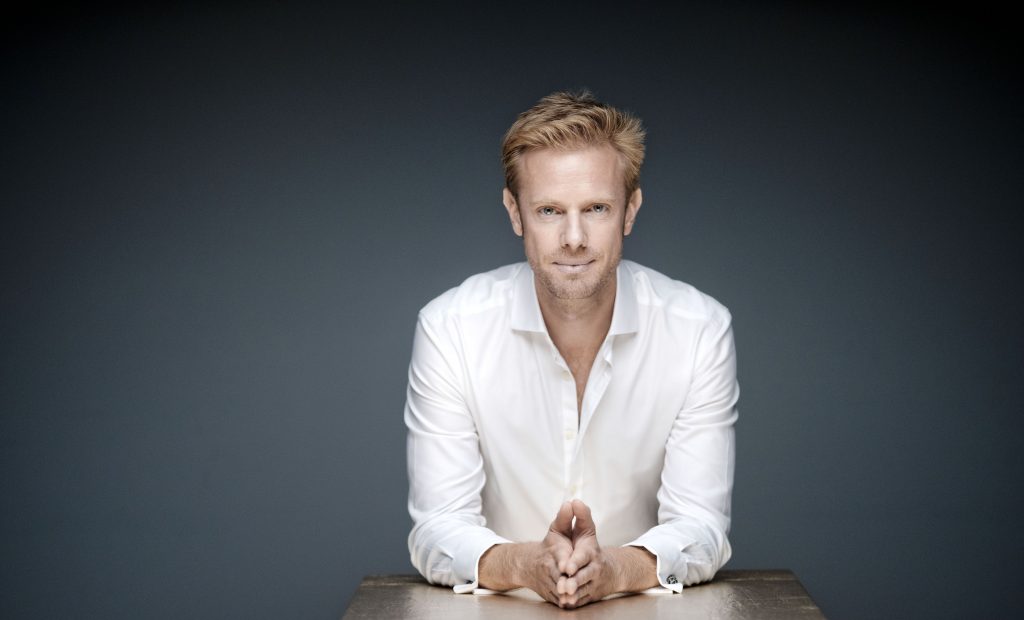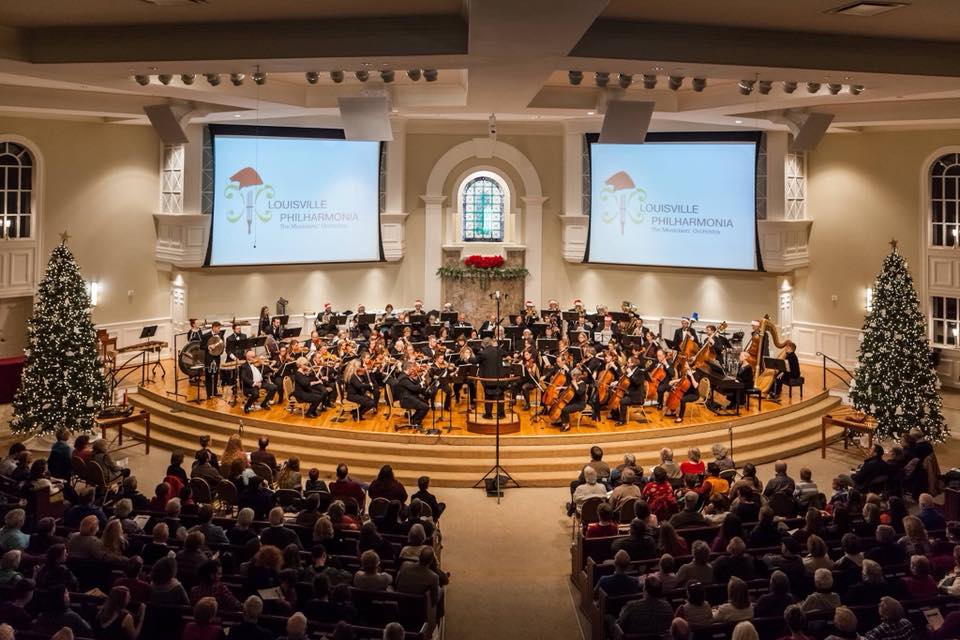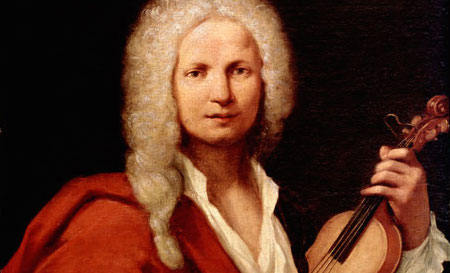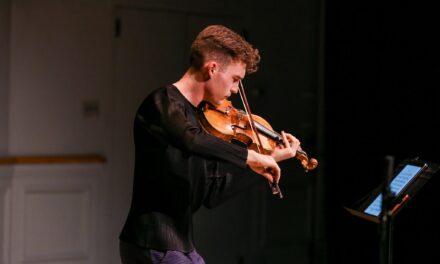Andrew von Oeyen Pianist Photo: Marco Borggreve
Tchaikovsky Piano Concerto
Louisville Orchestra
Francesco Lecce-Chong, conductor
Andrew Von Oeyen, pianist
Review by Annette Skaggs
Entire contents are copyright © 2019 Annette Skaggs. All rights reserved.
While thousands descended upon the YUM! Center to cheer on their favorite team, on a rainy spring evening, lovers of big music converged within Whitney Hall to indulge in one of Tchaikovsky’s most famous Piano Concertos: Concerto No. 1 in B-flat Minor, Op. 23. As exciting as this piece is, I was equally anxious for Dmitri Shostakovich’s Symphony No. 10 in E Minor, Op. 93 and a work (new to me) by Polish composer Grazyna Bacewicz titled Overture (1943).
I’ll be very honest, Shostakovich is not one of my most favorite composers, Russian or otherwise. I have found that he is a fan of repetition and when he finds a leitmotif that pleases him he uses it ad nauseam. His Symphony No. 10 is a small exception to that rule in that over the course of the four movements, the theme is re-introduced throughout. Now that is where I appreciate Shostakovich, he can be sneaky in those motifs, to where he alters it enough to make you ask yourself “that melody sounds familiar, but I really think that might be something new”, when in fact it truly is a running theme. What I do adore about this particular piece is that its composer forces the musicians to test their mettle. For instance, it is no secret that the strings get a tremendous workout in most orchestral music, but within this particular piece, the winds, woods and brass get a lot of attention. For example, in the nearly half-hour long first movement Moderato, there is a haunting solo clarinet (elegantly performed by Andrea Levine) that breaks free from the movement’s harsh and unsure melodic lines. It is from this solo that we get a hint of the musicality that awaits the orchestra and the audience. And within the winds, especially, where notes scrape the stratosphere of their capabilities, similarly for the woods. Flutist Kathy Karr is dynamic in achieving the necessary high notes to exemplify the second movement’s Allegro that closes with a hopeful solo piccolo ably delivered by Donald Gottlieb. The third movement was almost as hectic as the first, despite some hesitation as to where the theme would like to rest before there is finally a resolve found within the violas and cellos that would lead us into the fourth movement’s Andante- Allegro-L’istesso tempo. As the movement progresses there is a barrage of notes. Every instrument is being utilized including the not-used-often contrabassoon and it sounds a bit chaotic, but suddenly a blast of horns clears the air, in a fit of triumph perhaps, and delivers us to a strong and vibrant finish.
There is a story that goes with Tchaikovsky’s Piano Concerto No. 1 in B-flat Minor. He was looking for a critique of the work and turned to his intended soloist, Nicolai Rubenstein, the director of the Moscow Conservatory at the time, to give honest and friendly advice about the work. While playing the work Rubenstein sat in silence. As Tchaikovsky recounted that session in his memoirs he was livid with the director’s silence. Upon the conclusion of the work, Rubenstein declared the work clumsy, badly written, vulgar, and beyond help. Incensed with Rubenstein’s damning of the piece Tchaikovsky replied, “I shall not change a single note. I shall publish the work exactly as it stands!” Over time both musicians found errors in their judgment and after several revisions, we now have what is quite possibly the most recognizable concertos of recorded musical history.
With the horn section blaring and the orchestra serving as its base, the piano entered with punctuated arpeggios that were eight octaves wide. Just as the piano completed its punctuation it settled into a stellar melody found within the lower strings. As the movement ended the audience responded with thunderous applause and standing ovations. When the first movement moved on to the second: Andantino semplice-Prestissimo-Tempo I, the initial opening of the first movement had become a lost memory. That theme never comes back. Instead, Tchaikovsky embeds his theme deep within the concerto’s melody and harmony lines. You can find it within the woods and winds. The piano serves as a slight distraction from the melody but fits in oh so nicely. Lucky for us our soloist, the renowned pianist Andrew von Oeyen, knew when to be the soloist and when to allow the orchestra to shine. The solo work that is needed within this piece takes a great deal of piano expertise, as I believe that all 88 keys are touched at some point throughout the Concerto. The skill lies in how one communicates the 88 to the audience. Whether Mr. von Oeyen was flying by himself or acting as an introduction to beautiful cello and clarinet solos found within the movements, he was never heavy. Within the third movement, Allegro con fuoco-Meno mosso Allegro, Tchaikovsky cleverly hid melodies that he had grown up with. Whether you know the folk songs or not, it is not hard to recognize the Russian-Ukrainian sound that comes from the melodies. With rolling tympani that added to the climate of the melodic climb, the piano completed the task in a beautiful flourish of notes.
The first piece of the evening by Polish composer Grazyna Baewicz was, as I mentioned before, new to me. Ms. Bacewicz’s Overture (1943) certainly had Russian influence, with heavy use of strings. Given her background as a concert violinist, it makes sense. But I found that her composition goes fairly deep, in that she culls fluid lines that seem to not have a chance to breathe in the strings only to introduce brass used as rhythmic reminders. This all takes place within the first few stanzas. When the winds come on-line the music is not as fierce and surrenders itself to a place of calm and centeredness. Just as you are lulled into a state of tranquility the brass enter with sharp breaths of notes that break through the seam and serve as the heralds to a triumphant ending.
It will take me a couple more times of hearing Ms. Bacewicz’s music to get to know her work better, but I am certainly glad that our guest conductor Francesco Lecce-Chong introduced us to her. His work on the podium was filled with tons of energy and even a few acrobatic moves.
Bravi Tutti!!!
Tchaikovsky Piano Concerto
March 30, 2019
Louisville Orchestra
Kentucky Center for the Performing Arts
Whitney Hall
501 W. Main Street
Louisville, KY 40202
louisvilleorchestra.org
Annette Skaggs is heavily involved as an Arts Advocate here in Louisville. She is a freelance professional opera singer who has performed throughout Europe and in St. Louis, Cincinnati, Boulder, Little Rock, Peoria, Chicago, New York and of course Louisville. Aside from her singing career, she has been a production assistant for Kentucky Opera, New York City Opera, and Northwestern University. Her knowledge and expertise have developed over the course of 25+ years’ experience in the classical arts.





